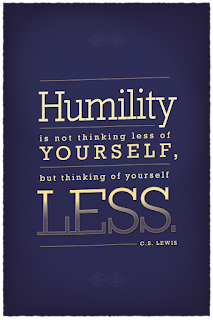Muhammad Ali, the legendary boxer, frequently said "I am the greatest!" His biography sits in many libraries.
Have you considered the question: Why do some people have books about them in the library?
The Lord does admonish us to write down our own personal story and to study those of our ancestors. "For the names of the righteous shall be written in the book of life, and unto them will I grant an inheritance at my right hand" (Alma 5:58)
The world’s definition of greatness is often misleading and can prompt damaging comparisons.
- Are we affected by the world's definition of greatness? Is popular put above valuable?
“Those things which we call extraordinary, remarkable, or unusual may make history, but they do not make real life.“After all, to do well those things which God ordained to be the common lot of all mankind, is the truest greatness."True greatness comes from persevering in the difficulties of life and from serving in ways that are often unnoticed.True greatness requires consistent, small, and sometimes ordinary steps over a long period of time.… Giving consistent effort in the little things in day-to-day life leads to true greatness. Specifically, it is the thousands of little deeds and tasks of service and sacrifice that constitute the giving, or losing, of one’s life for others and for the Lord.As President Joseph F. Smith has said, “Let us not be trying to substitute an artificial life for the true one.” (Juvenile Instructor, 15 Dec. 1905, p. 753.) Let us remember that doing the things that have been ordained by God to be important and needful and necessary, even though the world may view them as unimportant and insignificant, will eventually lead to true greatness.The small things are significant. We remember not the amount offered by the Pharisee but the widow’s mite, not the power and strength of the Philistine army but the courage and conviction of David."What is my depth but layers and layers of shallow?" e e cummingsFrequently it is the commonplace tasks we perform that have the greatest positive effect on the lives of others, as compared with the things that the world so often relates to greatness.But all things must come to pass in their time.Wherefore, be not weary in well-doing, for ye are laying the foundation of a great work. And out of small things proceedeth that which is great. (Doctrine and Covenants 64:32-33)
To Be of Use by Marge Piercy
The people I love the best
jump into work head first
without dallying in the shallows
and swim off with sure strokes almost out of sight.
They seem to become natives of that element,
the black sleek heads of seals
bouncing like half-submerged balls.
I love people who harness themselves, an ox to a heavy cart,
who pull like water buffalo, with massive patience,
who strain in the mud and the muck to move things forward,
who do what has to be done, again and again.
I want to be with people who submerge
in the task, who go into the fields to harvest
and work in a row and pass the bags along,
who are not parlor generals and field deserters
but move in a common rhythm
when the food must come in or the fire be put out.
The work of the world is common as mud.
Botched, it smears the hands, crumbles to dust.
But the thing worth doing well done
has a shape that satisfies, clean and evident.
Greek amphoras for wine or oil,
Hopi vases that held corn, are put in museums
but you know they were made to be used.
The pitcher cries for water to carry
and a person for work that is real.
jump into work head first
without dallying in the shallows
and swim off with sure strokes almost out of sight.
They seem to become natives of that element,
the black sleek heads of seals
bouncing like half-submerged balls.
I love people who harness themselves, an ox to a heavy cart,
who pull like water buffalo, with massive patience,
who strain in the mud and the muck to move things forward,
who do what has to be done, again and again.
I want to be with people who submerge
in the task, who go into the fields to harvest
and work in a row and pass the bags along,
who are not parlor generals and field deserters
but move in a common rhythm
when the food must come in or the fire be put out.
The work of the world is common as mud.
Botched, it smears the hands, crumbles to dust.
But the thing worth doing well done
has a shape that satisfies, clean and evident.
Greek amphoras for wine or oil,
Hopi vases that held corn, are put in museums
but you know they were made to be used.
The pitcher cries for water to carry
and a person for work that is real.

